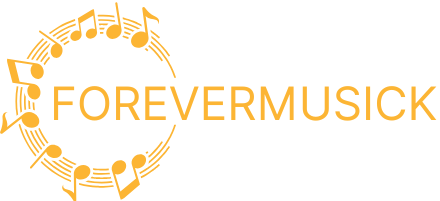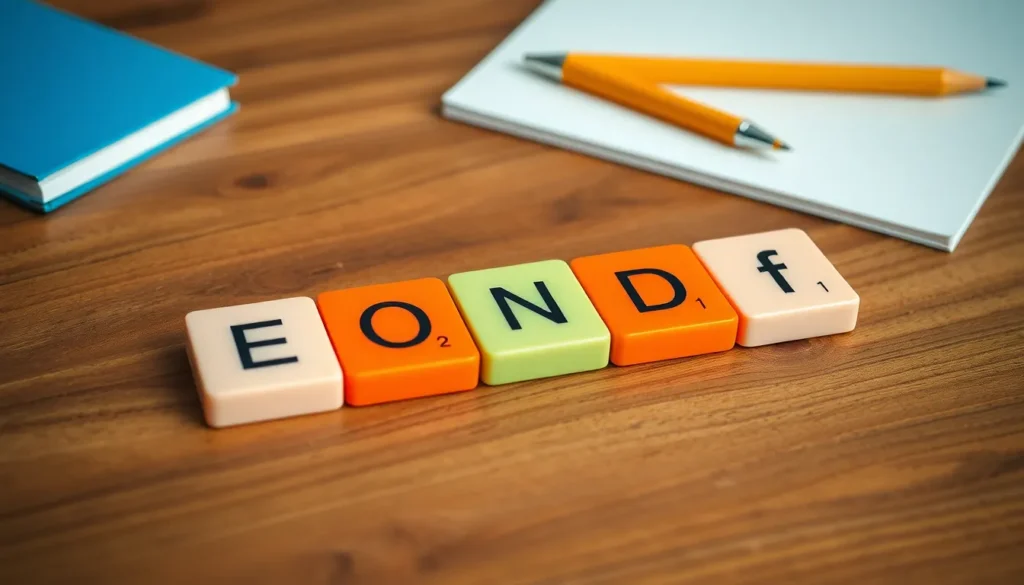Table of Contents
ToggleEver found yourself stuck in a word game, staring blankly at the letters? You’re not alone. The quest for that elusive five-letter word starting with “E” can feel like hunting for a needle in a haystack. But fear not! This article is here to turn that frustration into fun.
Whether you’re a crossword aficionado or just looking to impress at your next trivia night, knowing the right words can be the secret weapon you need. From “eager” to “eerie,” the English language is bursting with options that can spice up your vocabulary. So grab your thinking cap and get ready to explore some clever five-letter gems that start with “E.” Who knew wordplay could be this entertaining?
Overview of Five Letter Words Starting With E
Five-letter words starting with E offer a rich selection for word games and vocabulary building. Various terms highlight different parts of speech, including nouns, verbs, and adjectives. Examples like “eager” and “eerie” showcase the versatility of these words.
Exploring this category reveals various themes. Words such as “equal” express balance, while “edict” represents official orders. Terms like “enter” denote actions, adding dynamism to language use.
Different contexts make five-letter E words applicable in puzzles and creative writing. Crossword enthusiasts can benefit from words like “eclat,” which refers to brilliance or acclaim. Trivia players often enjoy the challenge of integrating less common terms.
Fostering an appreciation for these words enhances language skills. For instance, using “emoji” in digital communication enriches interactions. Variants like “exists” emphasize presence and can spark interesting conversations.
Engagement with five-letter words starting with E supports a broader vocabulary. Academic scenarios benefit from words such as “essay,” essential for scholarly writing. Moreover, game enthusiasts enjoy the playful aspect of incorporating such terms into various formats.
Overall, these words contribute significantly to both casual and formal communication. By embracing the diversity of five-letter words starting with E, individuals can enhance their linguistic dexterity and enjoy the nuances of language.
Popular Five Letter Words Starting With E

Five-letter words starting with “E” offer a wide range of meanings and uses. These words can enhance vocabulary for both casual communication and word games.
Examples and Meanings
- Eager: Showing keen interest or enthusiasm.
- Eerie: Causing a feeling of unease or fear; strange.
- Edict: An official order or proclamation.
- Equal: Being the same in quantity or value.
- Email: A system for sending messages electronically.
Usage in Sentences
Eager students often participate in classroom discussions. An eerie silence filled the room during the suspenseful movie. The king issued an edict that changed the laws. Equal opportunity remains crucial in the workplace. People frequently use email for quick communication.
Unique Five Letter Words Starting With E
Exploring five-letter words starting with “E” reveals a diverse range of options that enrich language. Such words not only add depth to vocabulary but also offer unique meanings.
Definitions and Examples
- Eager: This word reflects a keen interest in something. For example, “She was eager to start the new project.”
- Eerie: Used to describe something unsettling or creepy. An example includes, “The fog gave the landscape an eerie feeling.”
- Edict: An official order or proclamation. For instance, “The king issued an edict to change the law.”
- Equal: Refers to being the same in quantity or value. An example could be, “Both teams had equal chances of winning.”
- Email: A method for digital communication. For example, “He sent an email to confirm the meeting.”
Contextual Usage
These five-letter words find their utility in various contexts. In casual conversation, “eager” often indicates enthusiasm, making it perfect for social settings. Meanwhile, “eerie” can describe atmospheric experiences, enhancing storytelling. The term “edict” suits formal scenarios like legal discussions or historical texts. In everyday dialogue, “equal” might emphasize fairness in discussions about competition or resources. Lastly, “email” remains essential in professional communications, solidifying its relevance in modern exchanges.
Tips for Remembering Five Letter Words Starting With E
Utilize mnemonic devices to easily recall five-letter words starting with “E.” Creating memorable phrases or associations helps solidify words like “eager” or “equal” in memory. For instance, link “eerie” with spooky stories to reinforce its meaning.
Incorporate these words into daily conversations. Frequent use aids in retention and encourages fluency. By integrating “edict” or “email” into regular speech, individuals can enhance their comfort and familiarity with these terms.
Practice with word games and puzzles. Engaging with activities that involve five-letter words, such as Scrabble or crossword puzzles, fosters remembrance and enhances vocabulary. The challenge of finding words can spark interest and make learning more enjoyable.
Create flashcards featuring definitions and example sentences. This visual learning method benefits those who remember words better through sight. Writing down “eager” with context reinforces its meaning and application.
Read a variety of texts that include these words. Exposure to different contexts helps solidify understanding. Encountering “emoji” in digital communication or “equal” in articles about fairness provides practical insights relevant to everyday use.
Review and repeat regularly to reinforce learning. Consistent practice strengthens memory retention. Revisiting words like “edict” and “eerie” at intervals establishes a long-term understanding.
Exploring five-letter words that start with “E” opens up a world of linguistic possibilities. These words not only enrich vocabulary but also enhance communication skills across various contexts. Whether it’s for word games or everyday conversations, mastering these terms can boost confidence and creativity.
By incorporating techniques like mnemonic devices and regular practice, anyone can effortlessly remember and utilize these words. Embracing the challenge of wordplay can lead to greater enjoyment and appreciation of language. With a diverse selection at their fingertips, readers can elevate their language proficiency and enjoy the art of expression.







